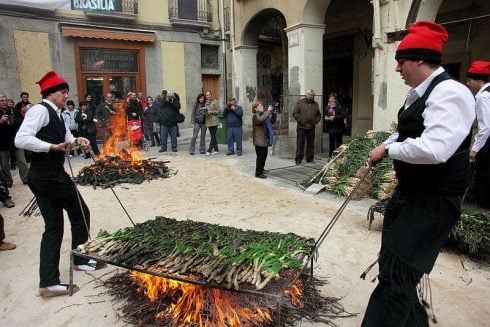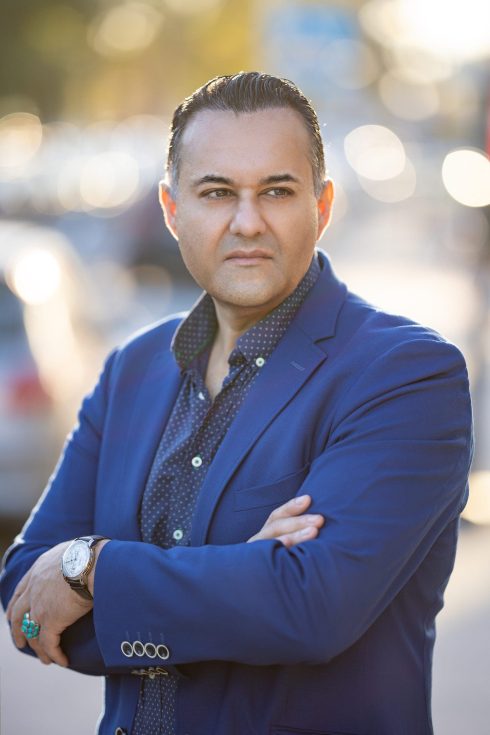THE Roman Empire’s influence on the Iberian Peninsula is omnipresent and unmistakable.
Segovia’s infamous aqueducts, Sevilla’s Italica, Cordoba’s Roman Bridge, the amphitheatres in Tarragona, Cartagena and Merida…the list of stunning works of Roman architecture is endless. The Roman imprint is also found in some not-so-obvious ways. The Romans spoke Latin – the linguistic precursor to today’s Spanish.
In cuisine too, for example wine and olive oil; Spain’s system of laws, market economics, etc. are also all derivatives from the Roman heritage. However, how many of us are aware of the reverse – namely, the Spanish imprint on Rome? This influence on the Roman Empire is best illustrated by an unbroken chain of ‘Spanish-born native sons’ who made significant contributions in the areas of oratory skills, literature, theatre and education.
In the city of Rome itself, for over a century, there was an intellectual circle of Spanish-born denizens who were the arbiters for all things literary, educational and philosophical. Let us meet some of them….
Seneca
In today’s Cordoba, near the ancient Roman Almodovar Gate, stands a statue of a short, bald man dressed in a toga. He is focused on a manuscript scroll. It is a likeness of what some consider Spain’s foremost intellectual – a thinker named Seneca (4 BC – 65 AD). Seneca was born in Cordoba but was sent to the city of Rome at an early age to study. There, he immersed himself in rhetorical skills, law, philosophy and natural sciences. He tutored the young future Emperor Nero, and remained an influential advisor as he, Nero, rose to political fame. Seneca’s powerful influence extended to the Roman military, political and social elites. Literary works attributed to Seneca range from treatises on Stoic philosophy, dramas (mostly tragedies), comedies and satire, discourses on political statesmanship and education. Seneca was Rome’s leading intellectual throughout much of the first century and some believe Seneca was, in fact, the de facto ruler of Rome. What is most interesting about Seneca’s place in history is that his prestige has survived the test of time. His philosophy has been referenced by such later thinkers as St. Augustine, Dante, Chaucer, Erasmus, John Calvin, Jean-Jacques Rousseau and many others. In 1965, Spain recognised the bimillenary commemoration of Seneca’s death. This event heralded yet another Seneca revival into the last decades of the 20th century.
Quintilian
Quintilian (35 AD – 100 AD) was born in the La Rioja region of Spain. Like Seneca, he was sent to Rome to study rhetoric, writing and philosophy. He quickly became a star pupil and gained the attention of Emperor Vespasian. He exerted such a strong influence amongst the Roman elites that he was rewarded with substantial endowments. He used these grants to launch what has been labeled the ‘first public school system’ in the Roman Empire. Quintilian’s pupils reads like a ‘who’s who’ list of influential individuals who went on to exemplify the future glory of Rome, for example Pliny, Tacitus, Suetonius and Domitian, to name a few. Quintilian’s best known literary work, Institutio Oratoria, became a well-known handbook on approaches to education and public-speaking. Quintilian’s influence on education continued for another 500 years within the Empire.
Lucan
Born into a wealthy Cordoban family, Lucan (39 AD – 65 AD) was sent not to Rome but to Athens to study rhetoric, logic and literary skills. This difference provided the young Lucan with a well-defined Stoic philosophical view of the world around him. He took this outlook to Rome where he, like Seneca, became a close associate to the infamous Emperor Nero. He was rewarded with various senatorial positions but what set Lucan apart were not his political positions but the immense popularity of his epic poems. His best known work, Pharsala, told the story of the civil war between Julius Caesar and the forces of the Roman Senate. At some point, Nero (thought by many to be insane) became jealous of Lucan’s real-time popularity and forbade the publication of his poems. Lucan responded by writing witty and insulting poems with political overtones directed at Nero. Things got so heated between the poet and Emperor that Lucan was ‘obliged’, at age 25, to commit suicide. Lucan’s work was not only popular during his short life but throughout the Middle Ages. Pharsala in fact, remained a school textbook in many parts of Europe well into the 19th century.
Martial
Marcus Valerius Martialis, known simply as Martial (41 AD – 102 AD) was a first century poet. He was born and educated in Zaragoza and moved to Rome soon after completing his formal studies. His earliest published works centred on exposing the urban vices of aristocratic Rome. Martial’s keen curiosity and power of observation manifested itself in a series of poems in which he cheerfully satirises city life and the colourful (yet scandalous!) activities of the Roman elite. He romanticised the simpler pleasures of rural life. His style was unique in that his poems were short and concise with inexact meter which often used obscene language for effect. This stylistic approach has led some to consider Martial the father of the modern ‘epigram’ – or keenly pointed and satirical prose.
During his life in Rome, Martial never rose to a position of prominence and always struggled with poverty. Interestingly, the works of Martial became highly valued, emulated and popularised by Renaissance writers – including Petrarch, Machiavelli and even Shakespeare – some 1,400 years after his death. These Renaissance writers shared with Martial an eye for the follies of the urban aristocratic class of their own time.









